CAMPAIGNS THAT SCALE GROWTH WITH PRECISION
Strategic Marketing that Moves the Needle
Go to market with confidence, align your teams, and drive meaningful growth with strategic and impactful marketing campaigns. Campaigns grounded in HubSpot, enhanced by AI, and designed to scale.
Month-to-month Campaigns
No Long-term Commitments
All marketing campaigns & retainers are now month-to-month! Try us out now, stay for the results.

Market with Purpose. Market to Grow.
Marketing Campaigns That Launch Products and Build Brands
It’s not just about visibility — it’s about building a marketing engine that turns interest into action and action into revenue.
 POWERED BY
POWERED BY
Get Your
Marketing Grade
Get a FREE AI-powered marketing grade, insights, and tips to improve. The report utilizes over 500 different evaluation data points across 8 marketing categories for a complete snapshot of your marketing performance and opportunities for growth.
HIVE Marketing Growth Levers
Be found in the AI era of search
AI SEARCH OPTIMIZATION (AEO) & CONTENT GUIDANCE.
We help you to optimize content, strategy, and visibility for LLM AI models through content and schema audits, optimization playbooks for existing assets, quarterly content roadmaps, and reporting dashboards to get you seen.
Explore Pricing
Win with your highest-value accounts.
ACCOUNT-BASED MARKETING (ABM) GROWTH PLAYS.
We help you to reach your ideal, targeted customers through advanced ICP refinement, target account identification, campaign design and strategy, quarterly ABM plays tied to your business goals, and ABM dashboards to measure everything.
Explore Pricing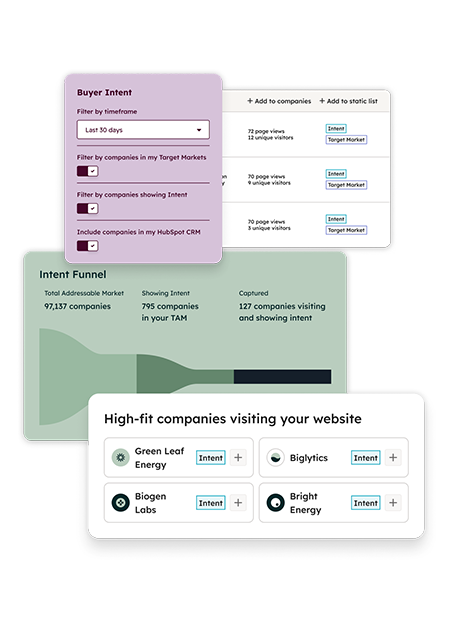
Align marketing, sales & service.
RevOps Engine.
We design full revenue operations plans to align your people, processes, and HubSpot to drive measurable and repeatable growth. Through lifecycle stage and lead scoring governance, sophisticated HubSpot build out, attribution and ROI reporting, pipeline optimization, and quarterly RevOps roadmaps, we lead growth.
Explore Pricing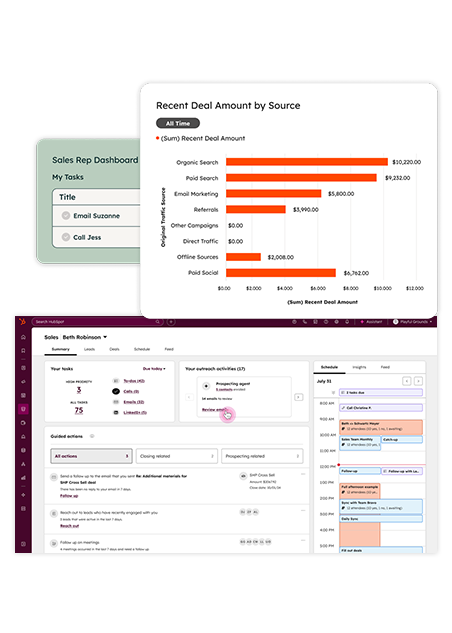
Turn more leads into pipeline—and keep them warm.
LIFECYCLE & NURTURE SYSTEMS.
We develop plans and strategies to generate net-new leads and also nurture the leads that already exist in your HubSpot. Through lead nurture workflows and campaigns, recycling and retargeting frameworks, scoring models to help prioritize sales-ready leads, and conversion dashboards, our team surfaces and actions leads at all stages.
Explore Pricing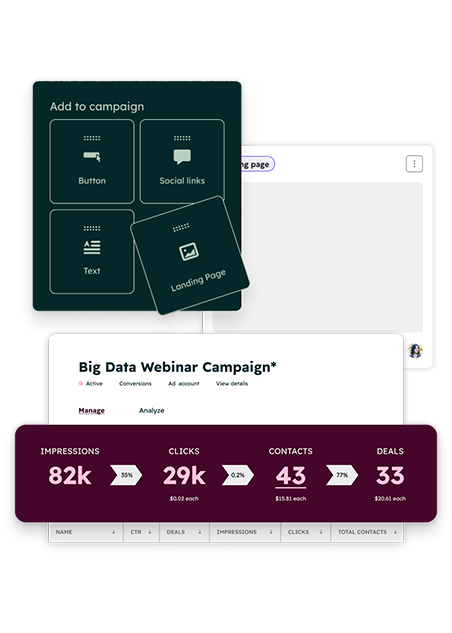
Empowering your sales team to hit quota.
SALES ENABLEMENT.
Sales is hard. We work closely with your marketing and sales functions and teams to enable faster time to close and better engagements through talk tracks/call scripts, sales automation, sell sheets, surfacing high-priority accounts, and prospecting workspace build out in HubSpot.
Explore Pricing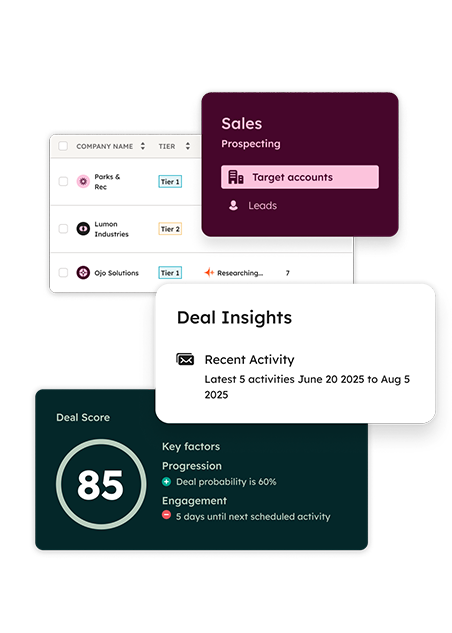
Clarity from the C-suite down.
ANALYTICS AND REPORTING SUITE.
We can't hit what we can't measure. Through our analytics and reporting suite, we enable clarity and data from the C-Suite down with multi-hub reporting in HubSpot, attribution model creation, executive dashboards, and GA4 and custom integration reporting. Visibility is key.
Explore Pricing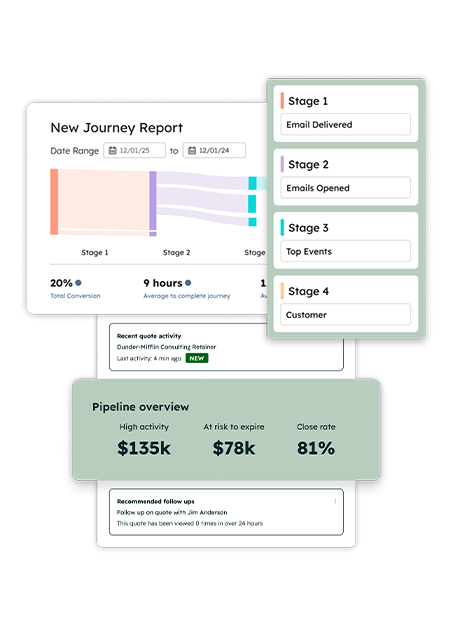
Marketing Solutions Pricing
How Retainers Work
- Choose 1–3 packages based on your goals.
- We create a 90-day roadmap for each package.
- Weekly touch points ensure you feel fully supported.
- Every deliverable ties back to one of the six levers.
Average clients invest $7,500–$12k/month across 2 packages. Smaller entry retainers start at $5k, and larger strategic programs run $15k+.
-
 Marketing Retainers
Marketing Retainers
Essential Retainer
Entry point for companies needing hands-on HubSpot expertise with light strategy.
Starting at
$5k/mo
Includes one package. Ideal for new HubSpot users or smaller teams testing strategic retainers.
Growth Retainer
Most Popular
The sweet spot for mid-market companies looking for measurable growth and RevOps alignment.
Starting at
$7.5k/mo
Includes any two packages. Ideal for companies ready to run multi-channel campaigns, ABM plays, and revenue reporting.
Enterprise Retainer
Comprehensive support for organizations rolling out multi-hub, ABM-heavy, and RevOps-driven growth programs.
Starting at
$15k/mo
Includes three or more packages. Ideal for larger teams or enterprise orgs seeking a HubSpot partner to act as their embedded marketing + RevOps function.
MULTIPLYING RESULTS ACROSS INDUSTRIES
Driving Exponential Growth.
Check out some of our amazing results through complex HubSpot migrations, AI implementation, custom API integrations, and marketing campaigns powered by HubSpot.
%20(1)%20(1).webp?width=540&height=350&name=Untitled%20design%20(20)%20(1)%20(1).webp)





Google-indexed pages were linked to business critical keywords.
Target keywords ranking #1
Targeted keywords on the first page of search results

The data behind our strategy-driven results
Strategic Growth in Action
Leads Generated
We’re one of the longest tenured and most decorated HubSpot Solutions
Partners in the world. No one does HubSpot like we do.
Our HubSpot Expertise
Our entire team is trained in HubSpot and we have the certifications, awards, reviews, and accreditations to prove it. Every member of our team is in HubSpot everyday executing tactics and crafting campaigns. We believe that the best agencies invest in their team's knowledge and skillset regularly. Each quarter we have a dedicated Certification Day to ensure that our team stays up-to-date with everything happening with HubSpot. Here are some of our HubSpot recognitions.
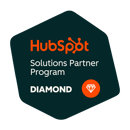
11+ Year HubSpot Solutions Partner
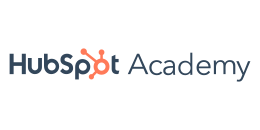
300+ HubSpot Academy Certifications

120+ 5 Star Reviews in the HubSpot Directory
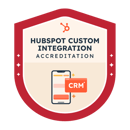
HubSpot Custom Integration Accreditation
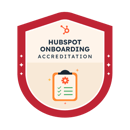
HubSpot Onboarding Accreditation
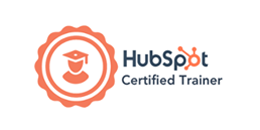
3 HubSpot Certified Trainers
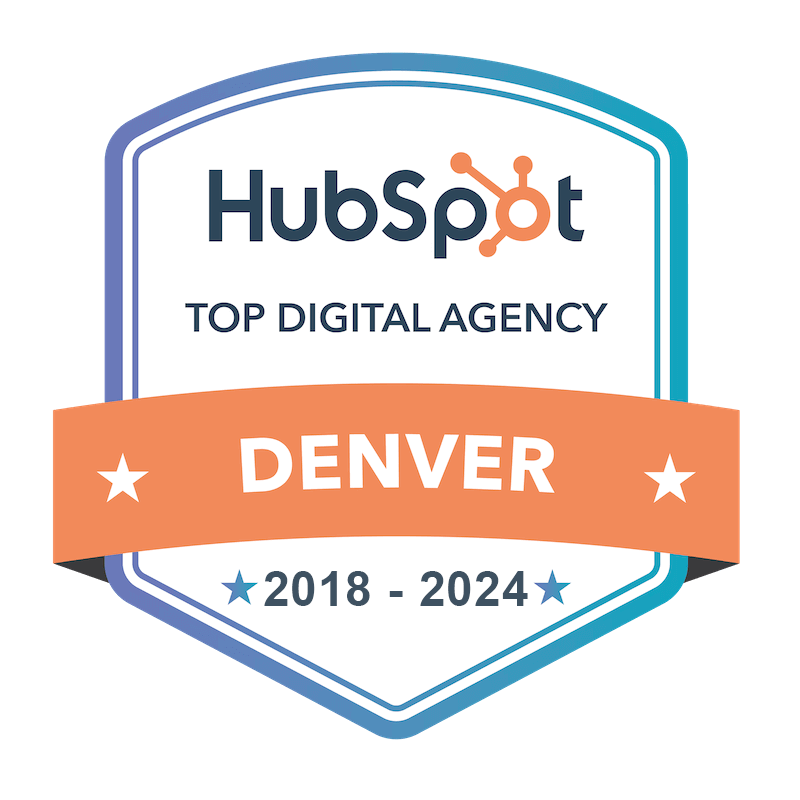
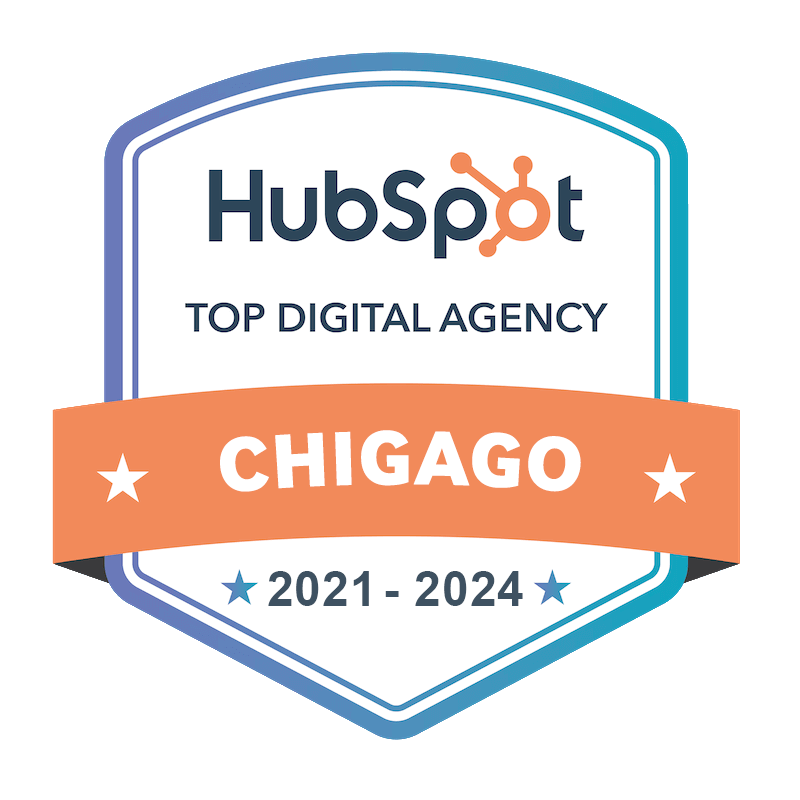
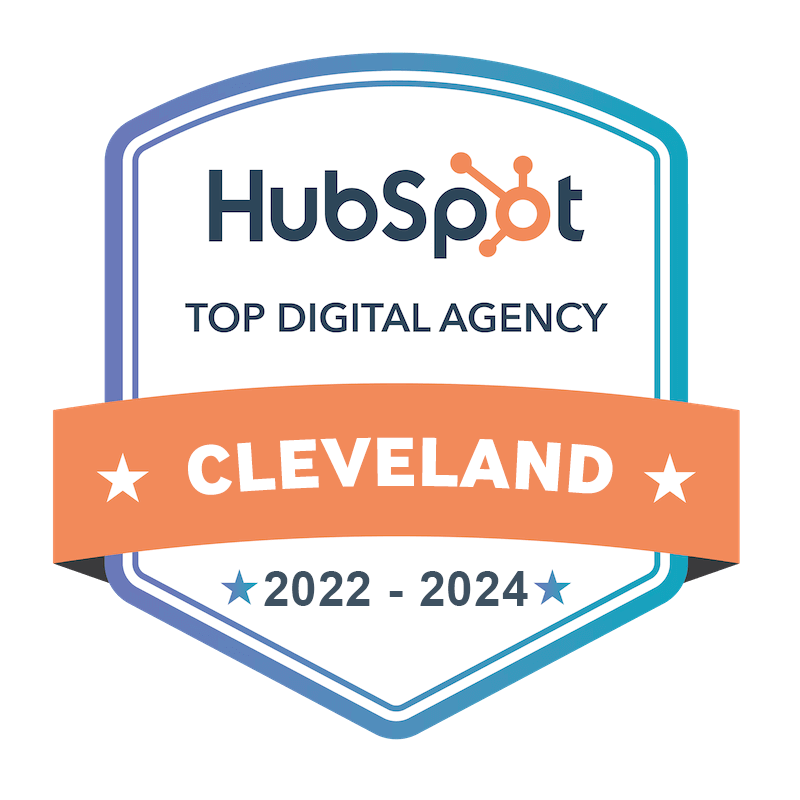
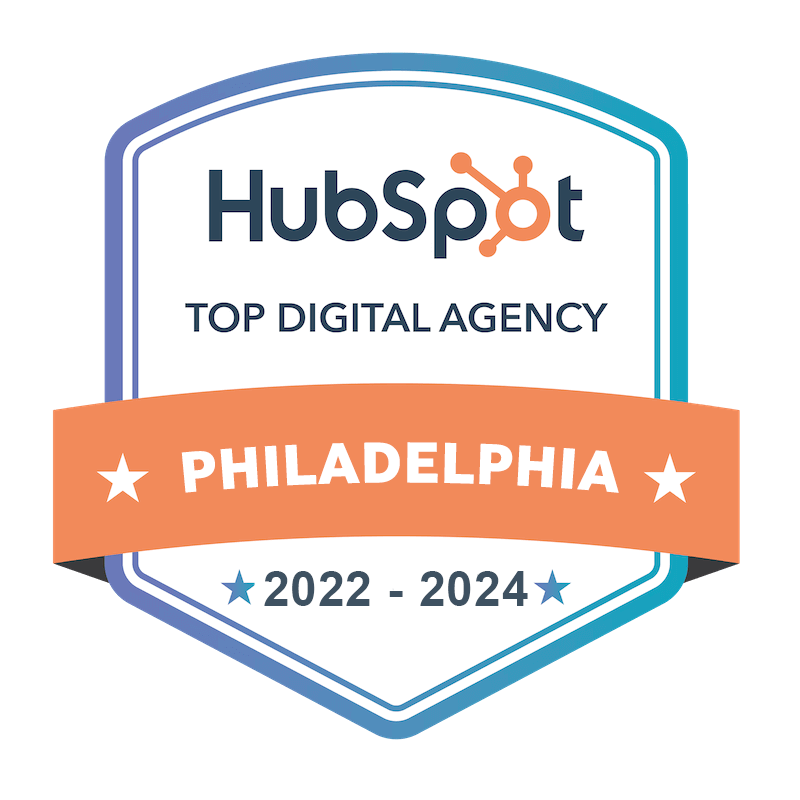
120+ Five Star Reviews
HIVE IS THE POWER HOUSE YOU NEED
From day one, the team has been incredible—just as impressive as the owner himself. They know their stuff. Their expertise is fantastic and we are trying things I would have never done on my own. And the best part: it's working! Every meeting we have leaves me with a focused list of action items that actually move the needle. They bring fresh ideas to the table and, more importantly, they’re there when I hit a roadblock—ready to hop on a call and walk me through whatever needs to be done. This team is knowledgeable, agile, professional, smart, creative, strategic, and most importantly—fun. Because at the end of the day, that’s what makes the work even better. If you’re on the fence about working with Hive—don’t be. It’ll be the best decision you make to hit your goals faster and more efficiently. Dani, Jenny, and Ari—my core rockstar team—are simply amazing (but honestly, I know the whole Hive crew is top-tier). And major kudos to Dustin for building such a powerful team! I give them 5 stars because that's the most I can give. Thank you to the Hive team!
DIRECTOR OF SALES
Our experience has been great from the moment with met Dani. Your team has delivered everything promised, efficiently and quickly. We appreciate the insights and suggestions that we have received as well as open communication.
GREAT AND KNOWLEDGABLE TEAM
They helped with LinkedIn outreach for event promotions and increased our team's virtual event registrants. They regularly recommended tools that I did not even know existed and helped our team seamlessly integrate them all.
HUBSPOT SAVANTS
We worked with HIVE to migrate both our marketing automation toolset (Pardot > HubSpot) and our CMS (Drupal > HubSpot), and were very pleased with the results. Would definitely recommend them to other teams looking for similar work or for HubSpot development in general.
AMAZING GROUP, COLLABORATIVE AND EFFICIENT
HIVE has proven to be a reliable and effective partner in both our marketing efforts and our CRM implementation. When we first partnered with HIVE, our marketing efforts were struggling and our HubSpot CRM implementation was incomplete. Their expertise and commitment to excellence have made a significant impact on our business, and we highly recommend their services.
BEST IN CLASS MARKETING TEAM!!
If you are looking for a top notch, best in class marketing team who knows HubSpot like the back of their hand, look no further. Since Bolt On Technology started working with HIVE Strategy we have seen a significant difference in many aspects of our business, and the impact was felt instantly. They are truly a breath of fresh air when it comes to communication and productivity from a marketing perspective.
CLEAR, KIND, AND COMMUNICATIVE!
HIVE Strategy is a great extension of our team, and always offers a thoughtful response in a timely manner. Jenny and Mallory have been integral in our overall understanding of the necessary steps to improve our marketing, and they often weave in our ideas as well to create a cohesive and collaborative plan. I cannot underscore their value enough.
A STELLAR GROUP
Working with HIVE for our marketing needs and HubSpot for onboarding has been an absolute game-changer for our company. From the moment we engaged with HIVE, their expertise in crafting tailored marketing strategies for our industry was evident. They took the time to understand our brand, goals, and audience, delivering campaigns that not only resonated but drove tangible results.
EXCEPTIONAL CONTENT AND SEO EXPERTISE
We at Insight Assurance have had the pleasure of partnering with HIVE Strategy, and we couldn't be more satisfied with their services. From the outset, their content strategy has been nothing short of impressive. They demonstrated a deep understanding of our industry, ensuring that every piece of content is relevant and insightful.
PROFESSIONAL AND FUN
It's been great to work with HIVE so far! Our whole team is knowledgeable, flexible, and fun to work with. I enjoy our calls every much with the team and I look forward to seeing the achievements we can reach with HIVE.
GREAT JOB AS A FULL SERVICE MARKETING AGENCY
HIVE does a great job as a full service marketing agency for my B2B technology company. They helped create our brand identity. Designed and developed our website. Do all our social media, both organic and paid. Excellent graphic design work. Very responsive customer service. Overall, a pleasure to work with.
Let's Get Started
Ready to Scale?
Buckle up.
Our team is here to answer any of your questions and get you started attracting, converting, closing, and delighting customers! Let's get to work!







.webp?width=100&height=100&name=Evolving%20From%20SEO%20to%20AEO%20How%20SMART%20Agencies%20Are%20Rethinking%20Content%20(1).webp)









